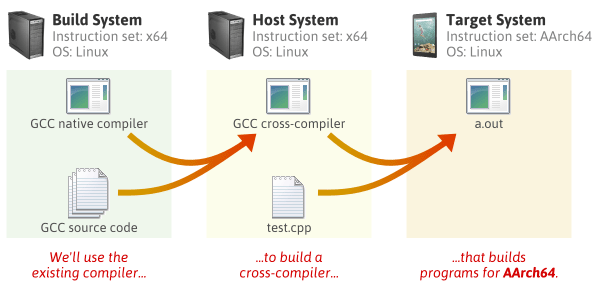

Good server hardware will work under a much heavier load sustained for much longer than any desktop will. There’s a reason the server market exists, after all. The Mini would be a terrible choice for a server box as it’ll fail under sustained heavy load.Īs would pretty much any desktop computer. It’s not a drive that should be used for 24/7 applications. The Mini has a standard laptop hard drive (for example) which has is rated for use for a few hours per day. It’s not rated as a server, and there’s a lot more to a server than being able to get data out. Oh and if the compiler is supposed to be a C++ compiler rather than a C compiler, does anything change? Doesn't CC stand for C Compiler? Does that mean there is another variable I have to change for C++, or is this variable still the one that needs to be modified? And am I still pointing it to the gcc file, or is there some other file it needs to point to (like g++ or something?).The Mini is being used pretty badly in many cases. I'm going to try to recompile the toolchain with cpp enabled this time, and try either the argument of CC= that I kept passing to the configure script, or I'll try your suggestion and modify the Makefile to change the CC variable.


That may have been the problem that I misinterpreted for the argument I was using not working. I kept getting errors while trying to compile the test program, but now that I look at it, it seems the test program was written in cpp, while, during the configuration stages of the toolchain I was making, I left cpp out of the gcc that was compiled (which was the default). I'm pretty sure the result should have been the same.
#XTOOLS TOOL GCC CODE#
configure like I've seen used in a few samples of code around the net, rather the modifying the Makefile. I think this is the solution I was trying, although I was trying it through an argument to. Here are explained configure, make and make install: Try changing that to your own compiler likeĬC=toolchain_gccTry reading some Makefile tutorials:

In header of Makefile there is usually CC flag which is telling make what compiler to use. Make is using Makefile to compile program. This is to the best of my understanding of course - I could be wrong here, but I'm pretty sure I've seen this happen (unless the errors about the glibc version mismatches I read were about some other problem).
#XTOOLS TOOL GCC SOFTWARE#
That means if the embedded system is using an older glibc library and I compile software on a different machine with a newer glibc library, the application will complain as soon as it is transfered over and run on the embedded system despite being the correct architecture. The problem with using this to compile something for an embedded system seems to be the fact that even though the architecture for which you are building changes here, the versions of glibc and other libraries stay the same. This should be useful if I am compiling something from an 圆4 system onto an x86 system, or the other way around - which I do sometimes. Heres an example using the arm gcc cross compiling libraries from the repository and the 'hello' source package configure uses the -host option when cross compiling, although i'm no expert on cross compiling. Dont know about how crosstool-ng does things, but.


 0 kommentar(er)
0 kommentar(er)
